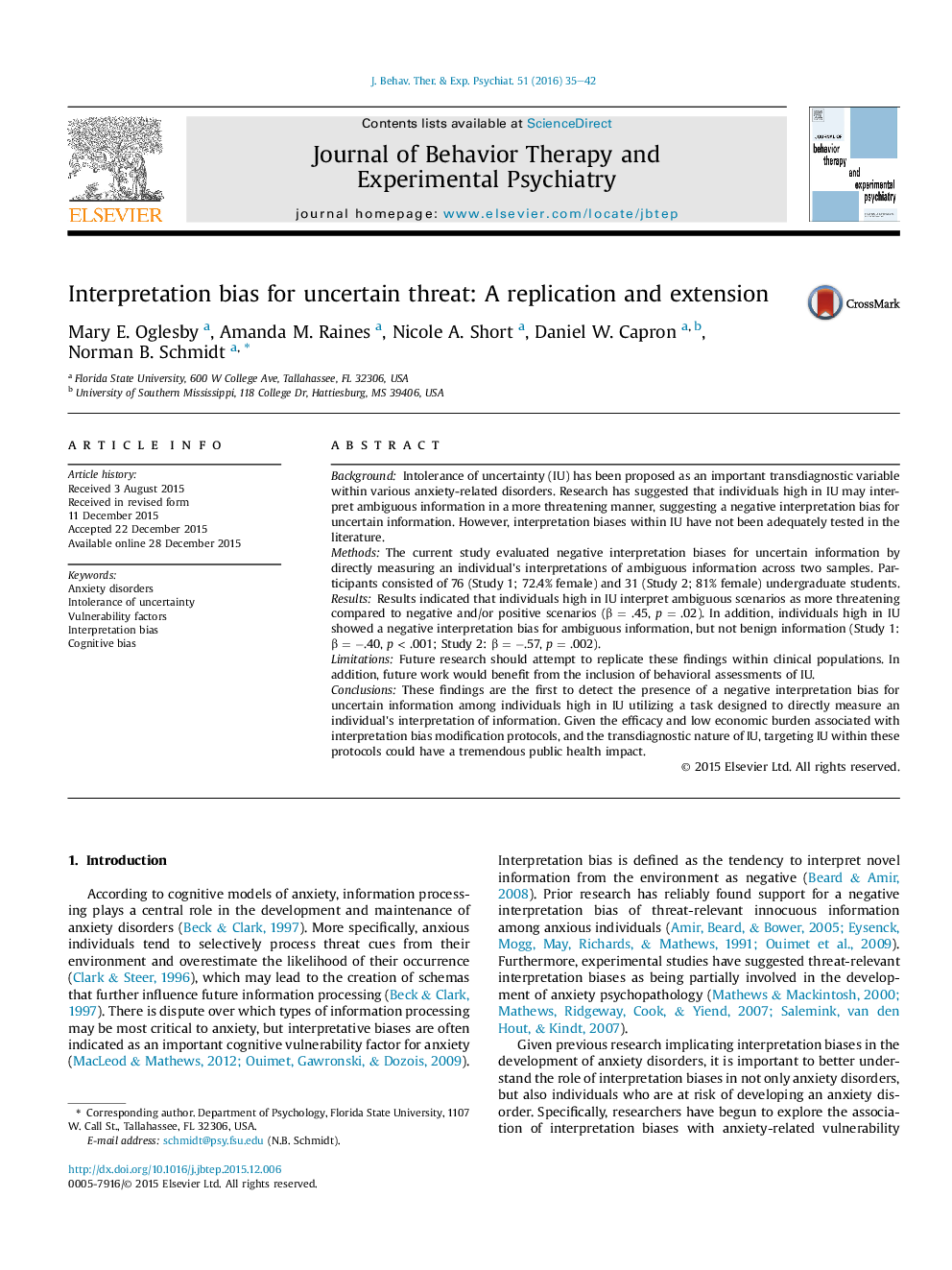| Article ID | Journal | Published Year | Pages | File Type |
|---|---|---|---|---|
| 910264 | Journal of Behavior Therapy and Experimental Psychiatry | 2016 | 8 Pages |
•Evaluated the presence of an interpretation bias for uncertain information.•Findings support a negative interpretation bias among those high in IU.•These findings were replicated in a separate sample.
BackgroundIntolerance of uncertainty (IU) has been proposed as an important transdiagnostic variable within various anxiety-related disorders. Research has suggested that individuals high in IU may interpret ambiguous information in a more threatening manner, suggesting a negative interpretation bias for uncertain information. However, interpretation biases within IU have not been adequately tested in the literature.MethodsThe current study evaluated negative interpretation biases for uncertain information by directly measuring an individual's interpretations of ambiguous information across two samples. Participants consisted of 76 (Study 1; 72.4% female) and 31 (Study 2; 81% female) undergraduate students.ResultsResults indicated that individuals high in IU interpret ambiguous scenarios as more threatening compared to negative and/or positive scenarios (β = .45, p = .02). In addition, individuals high in IU showed a negative interpretation bias for ambiguous information, but not benign information (Study 1: β = −.40, p < .001; Study 2: β = −.57, p = .002).LimitationsFuture research should attempt to replicate these findings within clinical populations. In addition, future work would benefit from the inclusion of behavioral assessments of IU.ConclusionsThese findings are the first to detect the presence of a negative interpretation bias for uncertain information among individuals high in IU utilizing a task designed to directly measure an individual's interpretation of information. Given the efficacy and low economic burden associated with interpretation bias modification protocols, and the transdiagnostic nature of IU, targeting IU within these protocols could have a tremendous public health impact.
